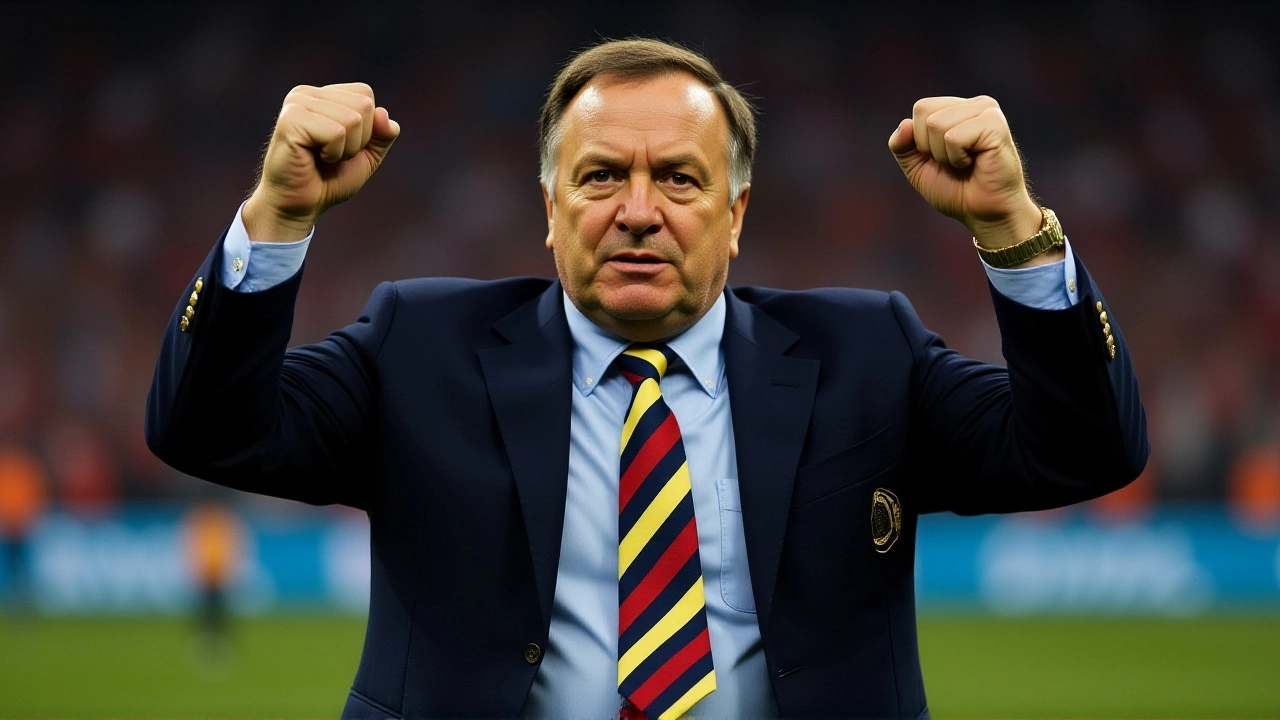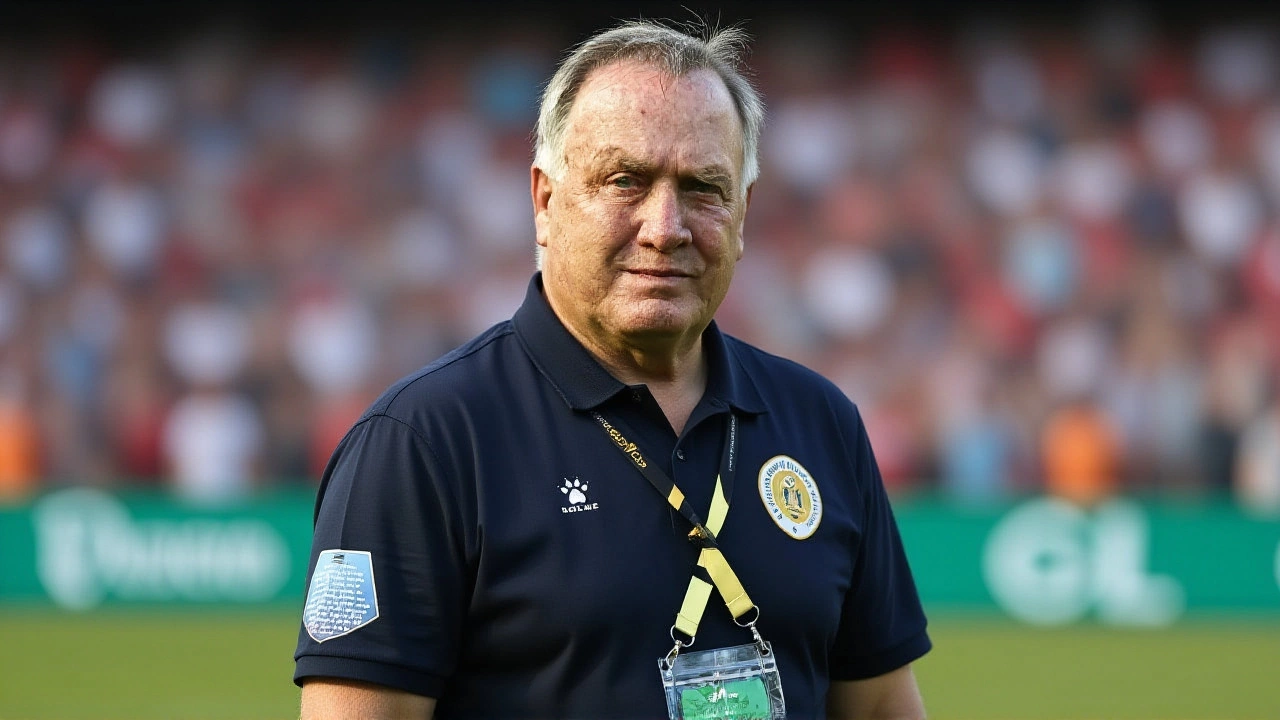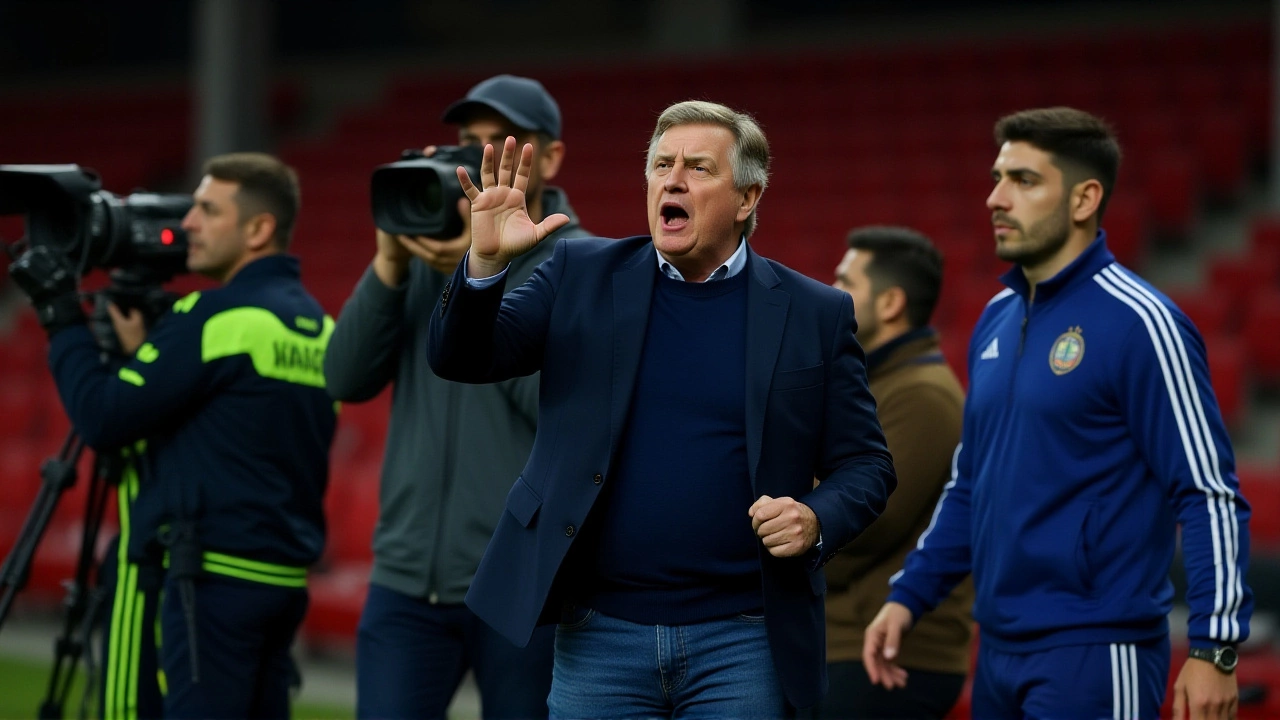At 78 years old, Dick Advocaat didn’t just coach a team to the World Cup—he rewrote history. On November 18, 2025, his underdog side, Curaçao, held Jamaica to a 0-0 draw in the final match of CONCACAF qualifying, securing their first-ever trip to the FIFA World Cup 2026United States, Mexico, and Canada. Advocaat, who missed the final match due to personal reasons, now stands poised to become the oldest manager ever to lead a team at a World Cup, shattering the 2010 record held by Otto Rehhagel. And Curaçao? With just 155,000 people, they’re the smallest nation ever to qualify—smaller than Blackpool, smaller than Ipswich, smaller than Iceland was in 2018.
How a Caribbean Island Outlasted the Giants
The path to qualification wasn’t glamorous. No global superstars. No Premier League stars. Curaçao’s squad was a patchwork of players from lower-tier clubs: Livingston in Scotland, Rotherham United in England, PSV Eindhoven’s reserves. Yet they played with grit. Advocaat’s side won three, drew two in their final five qualifiers. The most telling result? A 2-0 win over Jamaica in October 2025, thanks to goals from Livano Comenencia and Kenji Gorré. That result set the stage. When Jamaica needed a win in the final match to leapfrog Curaçao, they couldn’t break through. The draw was enough. The island nation, tucked in the southern Caribbean, had done the impossible.
Why This Wasn’t Just Luck
The 2026 World Cup format changed everything. With three co-hosts—United States, Mexico, and Canada—FIFA added extra qualifying slots for CONCACAF. That opened the door. But doors don’t open for teams that don’t kick them down. Advocaat, a veteran of 11 national teams across four continents, saw the opportunity and exploited it. He didn’t rely on flair. He built structure. Discipline. Organization. His teams are known for being hard to beat. In five games, Curaçao conceded just one goal. That’s not a fluke. That’s coaching.
A Manager Who Refuses to Retire
Dick Advocaat has been managing since the 1980s. He won league titles with Rangers and PSV Eindhoven. He led the Netherlands to the 1994 World Cup quarter-finals. He managed South Korea in 2002, Russia in 2010, even Iraq in 2021. He’s 78. He’s been coaching longer than many of his players have been alive. And yet, here he is, still on the sideline, still winning. "This isn’t about legacy," one former assistant told ESPN. "It’s about the next game. That’s all he cares about."

The Fallout: McClaren Steps Down
While Advocaat celebrated, Jamaica’s manager, Steve McClaren, walked away. The former England and Newcastle boss resigned immediately after the match. "Football is a results business," he said. "Tonight we fell short. It’s the leader’s responsibility to step forward." His departure underscores the brutal pressure in international football—even for seasoned managers. McClaren had been rebuilding Jamaica for 18 months. He gave everything. And it still wasn’t enough.
What This Means for Global Football
Curaçao’s qualification isn’t just a feel-good story. It’s a seismic shift. For decades, the World Cup was dominated by footballing giants. Now, the margins are blurring. The Caribbean, Southeast Asia, Pacific Islands—they’re not just participating anymore. They’re competing. Curaçao’s population is smaller than many English towns. Yet they’ll play on the same pitch as Brazil, France, and Argentina. That’s the new reality. Advocaat didn’t just qualify a team. He proved that football’s heart isn’t in the stadiums of Europe—it’s in the streets of Willemstad, in the training grounds of lesser-known clubs, in the quiet determination of players who aren’t paid millions but play for pride.

What’s Next for Curaçao and Advocaat?
The FIFA World Cup 2026United States, Mexico, and Canada kicks off on June 11, 2026. Curaçao will be drawn into a group likely featuring heavyweights like the United States, Spain, or Germany. They won’t be favorites. But they won’t be pushovers, either. Advocaat has already said he’ll manage through the tournament. If he does, he’ll be 79 when the final whistle blows. No one’s ever done that. No one’s even come close.
Why This Matters
This isn’t just about one man or one island. It’s about what’s possible. When Iceland qualified in 2018, the world marveled. But Iceland had 350,000 people. Curaçao has less than half that. Advocaat didn’t have a federation with billions in funding. He didn’t have a national stadium filled with 40,000 fans. He had a team of part-timers, a few professionals, and a manager who refused to believe size mattered. That’s the real story.
Frequently Asked Questions
How did Curaçao manage to qualify despite having such a small population?
Curaçao benefited from FIFA’s expanded 48-team format for the 2026 World Cup, which added extra CONCACAF slots due to the three-host model. But qualification required discipline: Advocaat’s team won three and drew two of their final five matches, conceding only one goal. Their squad, drawn from lower-league European clubs, played with tactical cohesion rarely seen in smaller nations. It wasn’t talent alone—it was structure.
Who is Dick Advocaat, and why is he considered a football legend?
Dick Advocaat is a Dutch manager with over four decades of experience. He won multiple domestic trophies with Rangers and PSV Eindhoven, led the Netherlands to the 1994 World Cup quarter-finals, and managed national teams across six continents—including South Korea in 2002 and Russia in 2010. He’s one of the few coaches to have won league titles in the Netherlands, Scotland, Russia, and Belgium. His longevity and adaptability make him unique.
What record will Advocaat break at the 2026 World Cup?
At 78 years old, Advocaat will surpass Otto Rehhagel’s record as the oldest World Cup manager. Rehhagel was 71 years and 317 days old when he coached Greece in 2010. Advocaat will be nearly eight years older, making him the first manager over 75 to lead a team at a World Cup. No one has even reached 75 before.
How does Curaçao’s population compare to other qualifying nations?
Curaçao’s population of 155,000 is less than half of Iceland’s 350,000 when they qualified in 2018. It’s smaller than cities like Birmingham (UK) or Minneapolis (USA). Only a handful of nations have smaller populations—like San Marino, Gibraltar, or the Maldives—but none have ever qualified. Curaçao is the first under 200,000 to make it.
Why did Steve McClaren resign after the match?
McClaren, Jamaica’s manager, took full responsibility for the team’s failure to qualify. After 18 months of rebuilding, Jamaica needed a win against Curaçao to advance but settled for a draw. McClaren, known for his accountability, stated football is a results-driven business and that leadership requires stepping down when goals aren’t met. His resignation was widely seen as a gesture of integrity.
What does this mean for future World Cup qualifiers?
Curaçao’s success signals that smaller nations can compete if managed well. With expanded formats and more slots, the gap between giants and minnows is narrowing. Teams like Grenada, Suriname, and Saint Kitts and Nevis may now believe qualification is possible. Advocaat’s achievement proves that coaching, not just funding, determines success—and that’s a game-changer for global football.




Write a comment